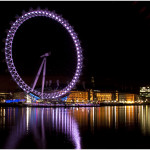Living in London
Living in London can be both a wonderful and intimidating experience. Whether you’re moving to study, work or to join other family members, doing some homework before you arrive can make the settling in period far less challenging. Let’s face it, moving within your own country is stressful enough, so add in the facts of discovering an unfamiliar area and new culture and you begin to understand how important pre-planning is.
London is a fantastic city in which to live and work. And whatever stage you’re at – be it the planning to move stage, packing to go or unpacking on arrival, it’s vital to have a reliable source where you can discover ‘need-to-know’ information.
For example, tips on housing, travel and transport, the cost of living, shopping and things to see and do. These are all crucial aspects on making your stay in London the most enjoyable it can be.
Facts about London
According to the latest census, which was carried out in March 2011 by the Office for National Statistics, there are 53,012,456 people living in England (this doesn’t include those who live in Scotland, Wales and Northern Ireland, which brings the to total to 63,181,775 for the United Kingdom). The population of those living in London is 8,174,100.
London is the most culturally diverse region in the UK, according to the census. 44.9 per cent of the people here are white, with a large populations of Indian, African, Asian and other nationalities.
Practicalities
One of the many benefits about living in London is that there really is no necessity to have a car. In fact, driving in central London costs you money due to a daily congestion charge, is frustrating because of the amount of traffic and parking presents major problems. Most Londoners use the efficient transport network of underground trains, know affectionately as ‘The Tube,’ buses and overground trains. All the transport options are well documented on the Transport for London website, or you can see our Travel page for information on getting around like a local.
Living in such a cultural melting pot provides Londoners with, amongst other things, one delightful advantage: the wonderful choice of food on offer. This makes trying authentic cuisine from literally every corner of the globe an easy reality, plus the chance to find something a little more familiar if you have a yearning for the taste of home.
Banking and business hours in London, and in fact in the whole of the UK in general, are standardised. Officially, banking hours are 09:30 – 14:30 Monday to Friday and 09:30 – 12:00 on Saturday. However, many banks now offer extended opening hours, such as 08:30 to 17:00 on weekdays, and to 16:00 on Saturday. Some even open on Sunday mornings in busier locations.
www.bankopeningtimes.co.uk can provide you with individual bank opening hours not only in London, but also throughout the UK. And these can also be found on the bank’s websites as well. The four major banks in the UK, with branches in every area of London, are Barclays, Lloyds TSB, HSBC and NatWest.
Business opening hours are, in general, open from 09:00 to 17:00 or 17:30, Monday to Friday. Shops tend to be open longer, especially in central London, from 09:00 to 17:30 or 18:00, but often found open until 19:00 in busy areas. Many grocery stores have far extended opening hours, and it’s possible to find these open late into the night, or even open 24 hours a day.
History and Culture
London isn’t one of the world’s top tourist destinations for nothing, as it’s one of the most historically important cities on the planet. And living in London means that you can take full advantage of all that history on your doorstep. But just because you’re a resident doesn’t mean that you shouldn’t avail yourself of the deals that are on offer for tourists to save money. The London Pass gives you many benefits, including free entry to over 60 top London attractions and tours.
Cost of Living
There’s no getting away from the fact that London is an expensive city to live and work. However, wages in London are considerably greater than those in the rest of the UK, partly because of this. According to the latest UK government study on the differences between major cities in the UK the major element that makes London the most expensive city in the UK is due to housing costs. This makes purchasing or renting a property undoubtedly the biggest outlay for anyone living in London.
When house hunting, one of the biggest choices any expat has to make is to decide on the trade off between the expense of living centrally, and the dramatically cheaper prices that can be found in the suburbs. For example, according to www.londonpropertywatch.co.uk , the difference between the purchase price of a one-bedroom apartment can range from £878,000 in central London, to £121.000 in New Malden.
And when it comes to rental properties, the price differences are just as large. A similar one-bedroom property in the Willesden area of London costs an average of £200 per week, but in the upmarket area of South Kensington cost £666 per week.
Expat Communities
Of course, one of the best places to get the most up to date information about London (apart from on this website), is from those expats who already live here. And whilst you undoubtedly want to integrate with the locals, sometimes you can’t beat an hour or two with those from your homeland.
London has many expat communities, so no matter where you move from they’ll always be the chance to hook up with a few people from home. If you’re interested in discovering where to find various groups, a good place to enquire is at a local Citizens Advice Bureau – who’ll be able to put you in touch with local groups.
Need more information?
Then check out our many pages that offer more in-depth advice on every aspect of living in London. From getting around to food, house hunting to shopping, the advice offered on these pages is constantly updated, meaning that it provides you with a current database of all the ‘must-have’ information.







